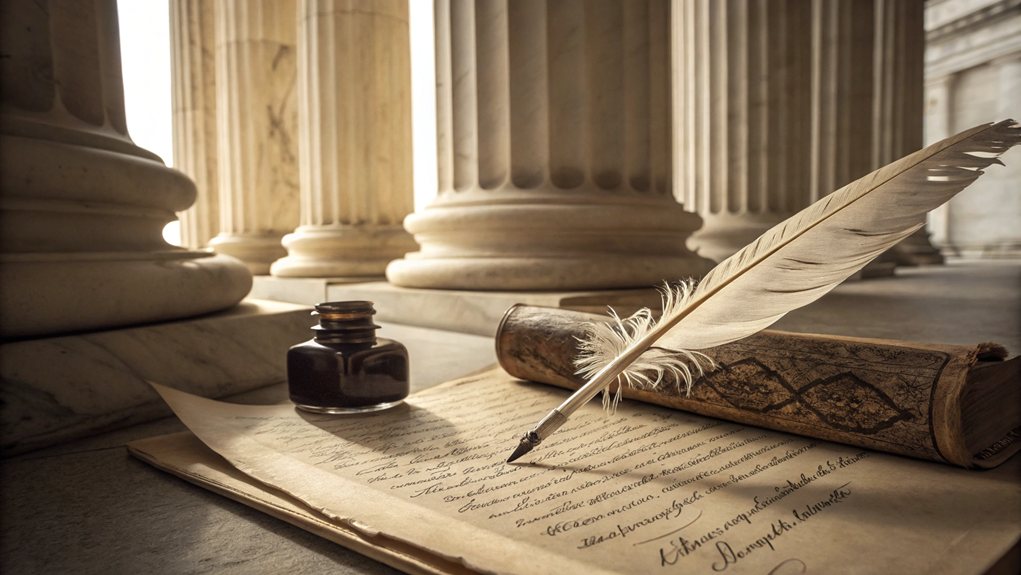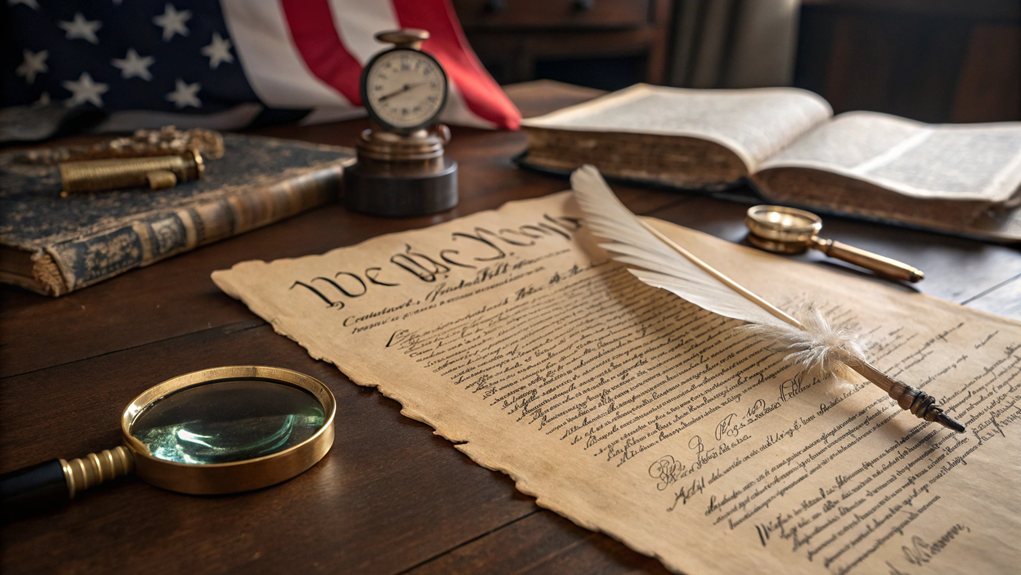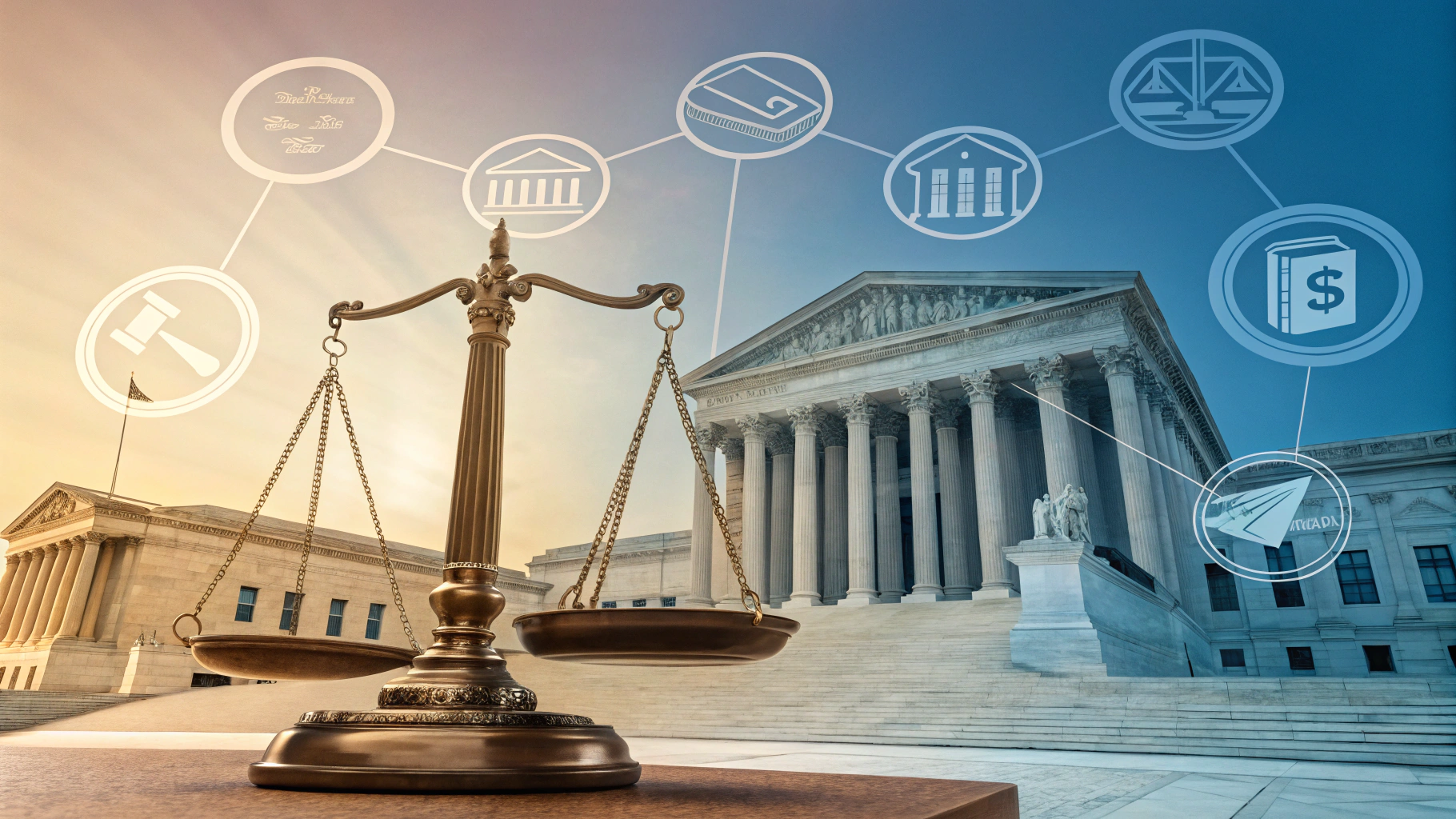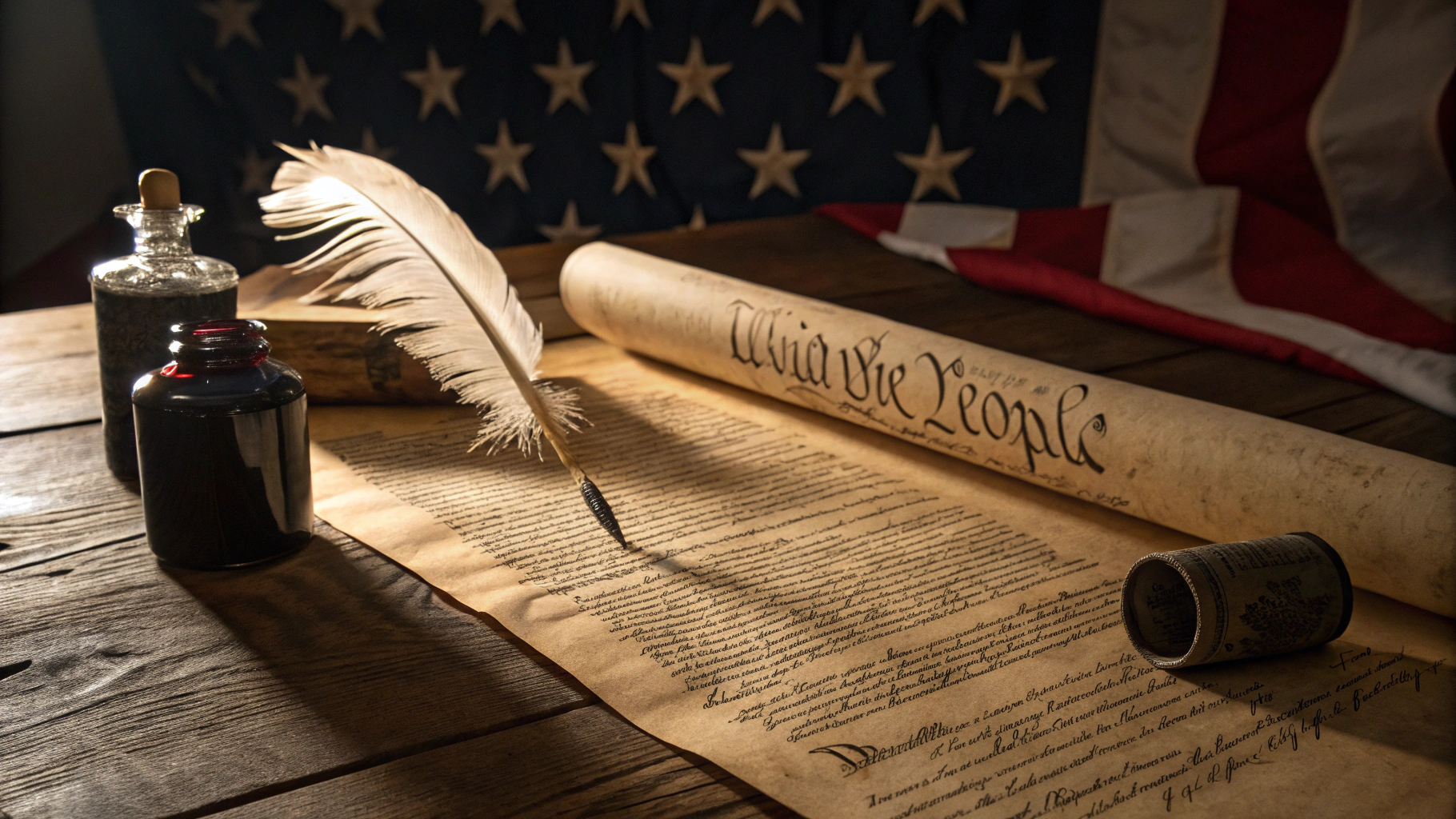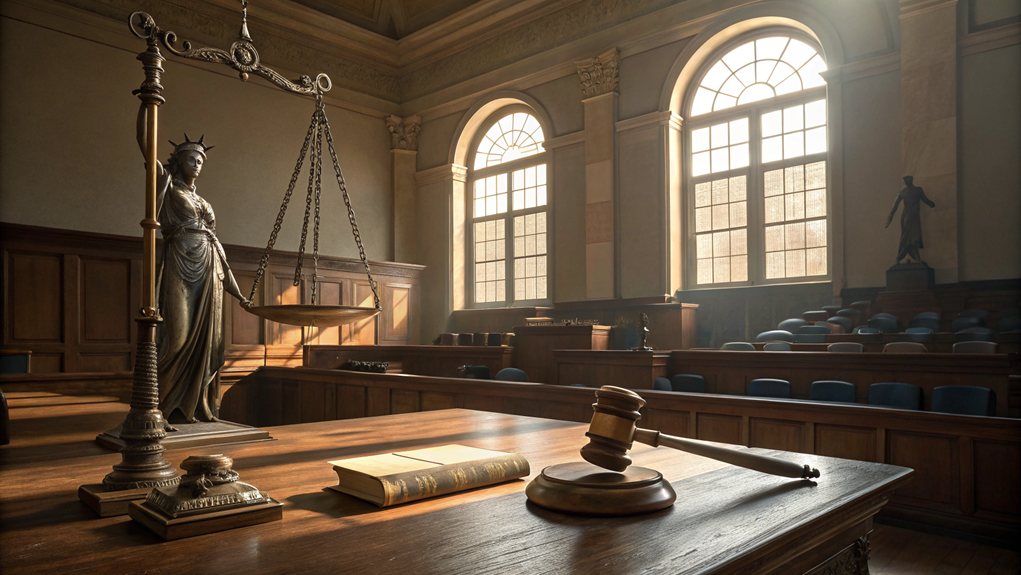The Bill of Rights is vital in American governance. It serves as a barrier against government snooping and protects individuals from the mob mentality. It's like a safety net for freedom—without it, democracy could easily turn into a tyranny of the majority. It keeps the government in check and protects minority rights. Plus, it's historic, stemming from documents like the Magna Carta. Curious about how these amendments shape civil rights today? There's more to explore!
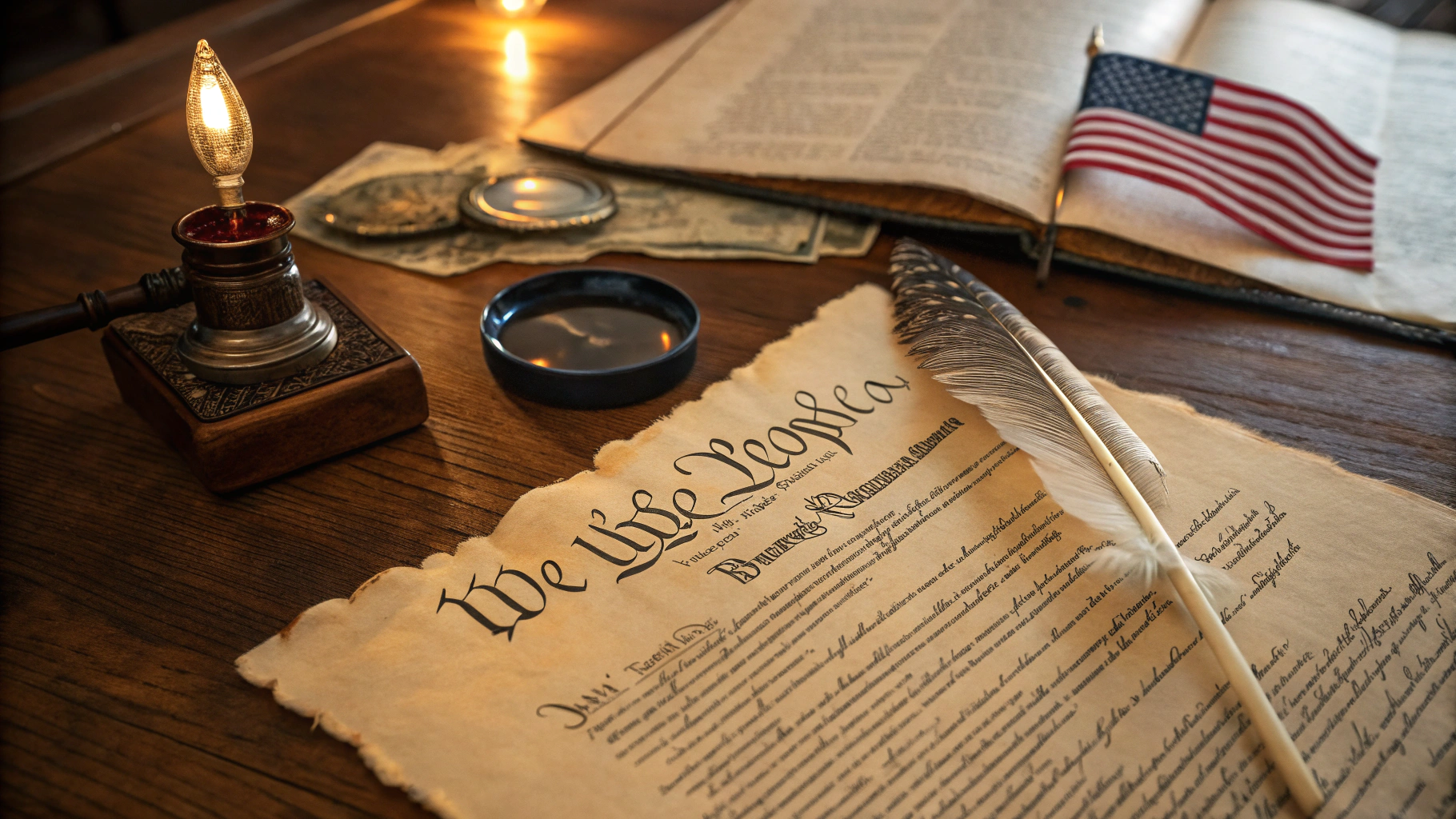
When it comes to American governance, the Bill of Rights isn't just a fancy addition to the Constitution; it's a deal-maker. Without it, the Constitution might have flopped harder than a bad school play. The fierce debates between Federalists and Anti-Federalists during ratification showed just how vital these first ten amendments were. The Anti-Federalists wanted guarantees, fearing a government that could stomp all over individual liberties. Good ol' Thomas Jefferson even chimed in, championing the need for a bill of rights to keep everyone's freedoms intact.
The Bill of Rights is rooted in history, influenced by the Magna Carta and the English Bill of Rights. It's like the founding fathers took a road trip through history and picked up some great ideas along the way. Those first amendments? They mean business. The First Amendment protects freedom of speech, religion, and the press—basically, a free-for-all for opinions. The Second guarantees the right to bear arms, which has sparked more debates than a reality show reunion. The 14th Amendment has also played a crucial role in shaping civil rights and liberties, illustrating the lasting impact of early constitutional amendments.
But wait, there's more! The Third Amendment says no soldier can crash at your place during peacetime without your thumbs-up. The Fourth safeguards your privacy by guarding against unreasonable searches. And the Fifth? It's a big deal, guaranteeing due process and protecting against self-incrimination. Additionally, the Bill of Rights was ratified in 1791, marking a significant milestone in the evolution of American democracy. The absence of a bill of rights initially hindered ratification by the states, highlighting its necessity.
The impact? Massive. The Bill of Rights keeps the government in check—no more unchecked power. The Supreme Court interprets these rights, and thanks to the doctrine of incorporation, they're not just for the feds—they apply to states too. It's like a safety net for everyone.
The Bill of Rights is more than legal jargon; it's a cultural icon. Celebrated on Bill of Rights Day, it's a reminder of what it means to be American. It balances liberty and democracy, protecting the rights of the few against the whims of the many. And that's not just important; it's indispensable.
Frequently Asked Questions
Who Proposed the Bill of Rights in the First Place?
James Madison, the guy often dubbed the "Father of the Constitution," was the one who took on the task of proposing the Bill of Rights.
Ironically, he wasn't even a fan of the idea at first—talk about a change of heart! He realized that without these amendments, the Constitution might face major backlash.
How Does the Bill of Rights Impact State Governments?
The Bill of Rights? Oh, it's a game-changer for state governments. Initially, it only harbored federal dreams.
But then came the Fourteenth Amendment, like a superhero swooping in. Now, states can't just trample on freedoms. Thanks to the Supreme Court, rights like free speech and religion are shielded from state interference.
States still have some wiggle room, but they better stay in line. Otherwise, they'll face federal wrath. No one likes that.
What Amendments Were Originally Proposed but Not Included?
Throughout history, a slew of amendments never made the cut. The Equal Rights Amendment? Still waiting for its moment.
Child labor regulation? Nope, not ratified.
Then there's the D.C. Voting Rights Amendment, which also flopped hard.
Even the Corwin Amendment, which tried to protect slavery, didn't pass.
The Balanced Budget Amendment? It's still just a proposal.
Each failure reflects public debates and priorities, showing that not every idea gets a stamp of approval.
How Has the Interpretation of the Bill of Rights Changed Over Time?
Over time, interpretations of the Bill of Rights have morphed like a shapeshifting monster. Initially, it was all about protecting citizens from the government—pretty straightforward.
Fast forward, and courts started expanding its reach to include tricky issues like privacy and gun rights. Who knew? The Ninth Amendment turned into a lifesaver for privacy claims.
Are There Modern Debates Surrounding the Relevance of the Bill of Rights?
Sure, modern debates about the relevance of the Bill of Rights are heating up.
People argue over what rights actually mean today. Is the Ninth Amendment a joke? Some think so. Others want to prioritize property rights over personal freedoms—because, you know, money is everything.
Critics are everywhere, questioning the legal system and its commitment to individual rights. It's a messy tug-of-war that shows no signs of slowing down.
Welcome to the future!
